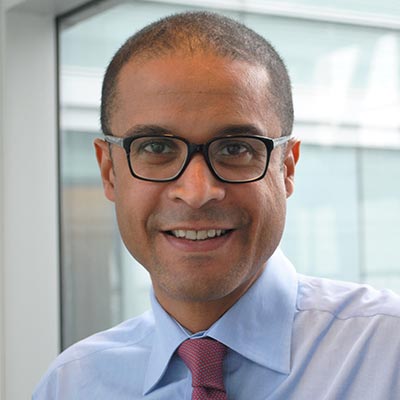Japan, Asia’s key market
In 2022, two infrastructure transactions in renewable energy were carried out:
- A USD 474-million investment to support the growth of Shizen Energy, one of Asia’s top renewable energy producers, in Japan and South-East Asia
- A CAD 90-million loan to finance a solar project operated by independent energy producer Vena Energy that supplies electricity to over 7,000 households per year
Its real estate subsidiary, Ivanhoé Cambridge, has been active in Japan’s real estate market since 2021 through:
- A stake in a USD 2-billion fund created by PIMCO Prime Real Estate to invest in the residential sector
- The launch of a USD 508-million platform, in partnership with PAG—a leading alternative investment firm focused on APAC—to develop and acquire logistics facilities
These transactions reflect CDPQ’s investment convictions in Japan as the organization continues to diversify its global portfolio.
Conditions favourable to infrastructure
Although highly industrialized, Japan has limited natural resources and depends on imports to meet its significant energy needs. The world’s third-largest economy is resolved to achieve a secure, affordable, energy supply and plans to take action against climate change, with the goal of becoming carbon-neutral by 2050.
This ambitious objective is supported by a strong political will, as well as by public opinion, which remains sensitive to this issue. As a result, a shift toward renewable energy is underway, with the renewable share of national electricity production slated to reach 36–38% by 2030, up from 22% in 2021 according to the IEA. John Faye, Senior Director, Infrastructure, in CDPQ’s Singapore office explains:
“The environmental consensus and the scale of efforts to reach the country’s climate goals—combined with its stability—reinforce our convictions on Japan.”
He adds: “Clean energy and decarbonization lie at the heart of our Shizen Energy investment thesis, and we strongly believe that partnering with a local developer is the best strategy for generating good returns in a market where the cost of capital is low and competitive pressures are growing.”

Senior Director, Infrastructure, CDPQ Singapore
According to him, this applies equally to proven green technologies (solar or onshore wind) and to the emerging offshore wind sector, which could be a considerable opportunity if Japan can deliver on its ambitions. “That said, we are also considering other areas,” he notes. “Japan’s infrastructure is aging, and we think that the need to renew it will lead to more opportunities for us.”
Two orientations in real estate
Ivanhoé Cambridge aims to inject more capital into Japanese real estate, a mature market where the organization has two sectors in its sights:
- Logistics, which offers growth potential thanks to booming e-commerce, high occupancy rates and a lack of modern facilities
- Residential, which generates stable and resilient returns, thanks in part to low financing costs

Head of Investments, Asia-Pacific, Ivanhoé Cambridge
Laurent Fischler, Head of Investments, Asia-Pacific at Ivanhoé Cambridge, also based in Singapore, explains: “The rental market is highly developed in Japan. Demand is primarily driven by young people, who are holding off on purchasing property until after marriage. Although the country’s overall population is declining, it is still growing in the bigger cities where jobs are concentrated.”
“Assuming the leasing risk—acquiring finished buildings that are still vacant—represents a competitive advantage for us.”
He acknowledges that to set oneself apart, agility and boldness are essential because transactions are often by invitation.
A competitive market
Due to low interest rates, Japan’s business environment is characterized by an abundance of low-cost capital. In John Faye’s view, less typical sectors—such as renewable energy—are where CDPQ can really stand out from the competition with its track record of innovative projects focusing on new infrastructure models.
In private credit, Maria Hernandez Jimenez, Senior Associate, Infrastructure Financing, who was part of the Vena Energy transaction team, points out that “access to the Japanese market is difficult because companies are well served by local banks.” What made the difference for CDPQ was offering a niche product and being in the right place at the right time.

Senior Associate, Infrastructure Financing, CDPQ Fixed Income Inc.
“It was a great opportunity to gain a foothold in a developed market in a priority sector for the organization,” she says. “We are open to financing other projects there, on a selective basis, but our Asia-Pacific approach remains opportunistic.” In her view, there are multiple challenges to investing in Japan, including interest and exchange rate fluctuations and the language barrier. This makes it even more important to work with a partner who is familiar with how the country operates.
“Doing business with GIP, a major Vena Energy shareholder, was a deciding factor when we began this venture”, she acknowledges.
Laurent Fischler echoes this view: “The key to operating in this market is to partner with actors who are firmly established on the ground, especially when we don’t have a local team to manage the assets’ operations.”
By focusing on partnerships and their distinctive advantages, CDPQ and Ivanhoé Cambridge intend to grow their presence in Japan. The timing is right: the energy transition is gaining pace and the country is poised to play a key role in Asia’s decarbonization efforts.
CDPQ in Japan
Over the past decade, our activities in Asia-Pacific have grown significantly, primarily in India and Australia, but also in Japan, where our investments have more than doubled in that time.
Main advantages
- A prosperous market of nearly 125 million people
- Robust institutions and a stable regulatory framework
- A business environment where the rule of law reigns supreme
- A beacon of stability in the region
7.8 B
Assets in Japan in 2022 (1.6% of the global portfolio)
12%
Potfolio’s exposure to Asia-Pacific




